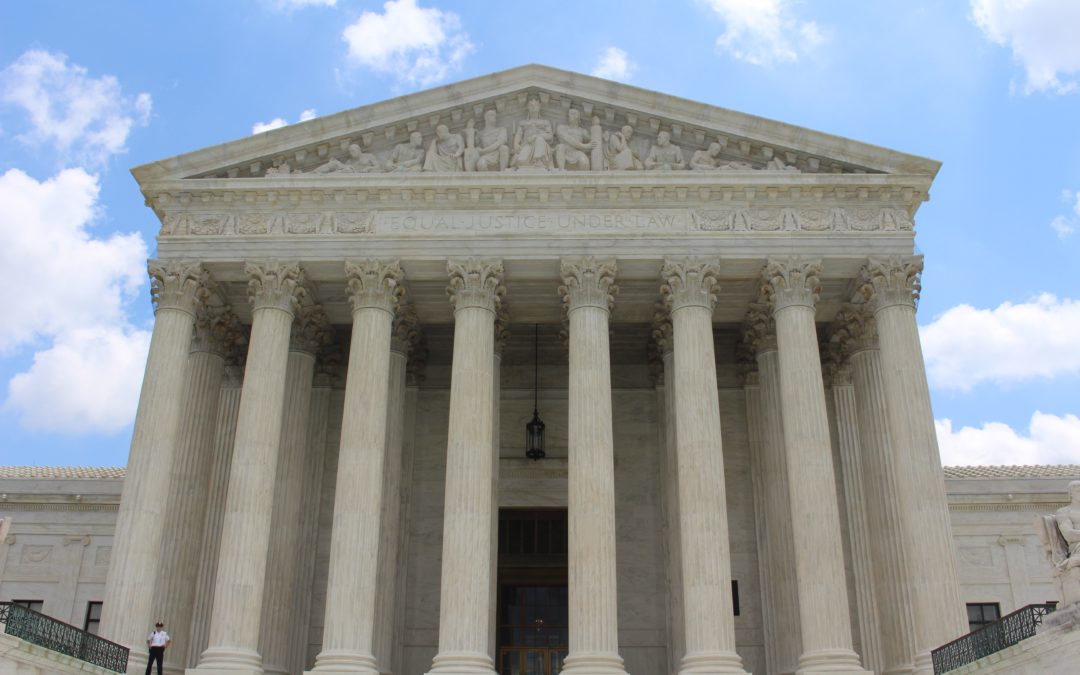Welcome to This Week in Civil Rights and Civil Liberties. Blockbuster cases came to the Supreme Court this week involving campaign finance laws, the Jan. 6 Capitol siege, sentencing reductions, and more. Major news about potential criminal charges for election interference also broke.
The Supreme Court allowed Texas’ 6-week abortion law to stand in the latest effort to block it. The Court rejected abortion providers’ request last Thursday to enjoin the law on procedural grounds and return the case to the district court. It did so in an unsigned order. Justices Stephen Breyer, Elena Kagan, and Sonia Sotomayor wrote in dissent.
The justices considered how much discretion lower courts have in sentencing reductions under the First Step Act. The Court heard Concepcion v. United States last Wednesday, which weighs whether district courts can or must consider intervening factual and legal developments when deciding whether to reduce sentences for pre-2010 drug crimes.
The Supreme Court heard a challenge to campaign finance restrictions. At issue is whether the provision of the Bipartisan Campaign Reform Act that limits how much candidates can raise post-election to recover loans made to their own campaigns is constitutional. Senator Ted Cruz and his political campaign committee challenged the BCRA’s $250,000 cap on First Amendment grounds. Supporters of the provision defended the provision’s constitutionality and argued the cap is needed to prevent bribery.
The Supreme Court declined former President Donald Trump’s request to block records from the House committee investigating the Jan. 6 Capitol riot. Trump’s claims that executive privilege shields the documents will continue to be reviewed by courts, but the Court denied an injunction as they are heard.
The Atlanta district attorney requested a special grand jury in a criminal probe against former President Donald Trump, who sought to overturn Georgia’s 2020 election results. The defeated president pressured Georgia’s secretary of state to “find 11,780 votes” and declare him the victor in the state that President Joe Biden won. Legal experts say Trump’s actions could prompt charges for racketeering and conspiracy to commit election fraud.
The Supreme Court will consider whether Oklahoma can prosecute non-Indians who commit crimes against tribe members in “Indian Country.” The Court declined to overrule McGirt v. Oklahoma, which held that a state cannot prosecute an enrolled member of a tribe for crimes committed within tribal boundaries under the Major Crimes Act. The holding that the federal law gives only the federal government power to try certain crimes by “any Indian” within “Indian country” will stand, but the Court will decide whether non-tribe members are subject to a state’s criminal jurisdiction.
The New York State Bar Association is moving to end its requirement that law school graduates disclose juvenile arrests and police interactions short of convictions on their bar applications. A NYSBA report found that “no reliable evidence that criminal record screening has benefits for the public or the legal profession” and that racial disparities in the criminal justice system could consequently discourage affected people of color from the legal profession. The move follows the NYBA’s recent vote to remove questions about mental health history from its bar application, which the association found to be intrusive and could discourage would-be attorneys from seeking treatment.

